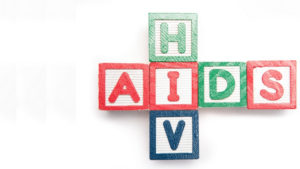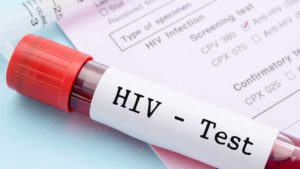Overview
Western Australia does not have an HIV-specific criminal law, but the general criminal law has been used to prosecute people for alleged HIV ‘exposure’ and transmission.
Four cases have relied on section 294 of the Criminal Code, which criminalises undertaking an act to do grievous bodily harm, including an act likely to result in a person having a serious disease. Another case used section 304, an act or omission causing bodily harm or danger.
Four cases have related to alleged transmission, while one involved alleged ‘exposure’. In the first known case in 1998, HIV was considered an aggravating factor for sentencing relating to child sexual assault. Subsequent cases in 2018 and 2020 involved unprotected sex resulting in transmission to more than one partner. In another case in 2018, a transgender woman was convicted of causing grievous bodily harm to a man she had sex with while working as a sex worker. The accused was then incarcerated in a male prison. In February 2020, her application to stop her deportation to New Zealand (her country of birth) was successful following her engagement with, and support from, community organisations including Magenta, National Association of People Living with HIV (Australia), and Scarlet Alliance, however as of 2023 legal proceedings are still ongoing. Despite being an Australian resident, her visa was subject to mandatory cancellation as a result of having a criminal conviction.
The only non-sexual case we are aware of relates to alleged ‘exposure’ through spitting. In 2018, a man allegedly spat at a security officer during an altercation and claimed he had HIV. A charge of serious assault was upgraded to assault occasioning bodily harm on the basis of his alleged HIV status, which drew criticism from advocates who highlighted the lack of possibility of transmission through spit. The outcome of the case is not known.
Western Australia’s Public Health Act also has a non-criminal provision relating to HIV. Section 88 states that a person who suspects they have a notifiable disease (including HIV) must ascertain whether or not they have the disease and must take reasonable precautions to ensure others are not placed at risk of contracting the disease. It also states that a person who is at risk of contracting a notifiable infectious disease must take all reasonable precautions to avoid contracting the disease. The Public Health Act also sets out special powers in relation to control of ‘dangerous infectious diseases’, including powers to require examination or isolation, though no criminal penalties are attached.
In 2014, the Western Australia Parliament adopted the Mandatory Testing (Infectious Diseases) Act 2014, which allows for compulsory testing of people whose bodily fluids, such as semen, blood, and saliva, come into contact with police or other public officers. This law explicitly includes HIV among the diseases to be tested for.
The Western Australian Case Management Program guidelines 2012; A program for individuals with HIV who knowingly expose others to the risk of infection are written for healthcare professionals to help them assist individuals to modify their behaviour through intensive counselling, education and support, noting public health orders and invoking the law should be used only as a last resort. Interventions range from supportive interventions to, if a person fails to follow directions, detention. The Code aligns with the National Guidelines for Managing HIV Transmission Risk Behaviours which state that the least coercive actions should be used first, aiming to place the person under the least restriction possible, and to de-escalate or discharge the person from management.
Laws
Criminal Code Act 1913
Section 294. Act intended to cause grievous bodily harm or prevent arrest
(1) Any person who, with intent to maim, disfigure, or disable any person, or to do some grievous bodily harm to any person, or to resist or prevent the lawful arrest or detention of any person —
(…)
(h) does any act that is likely to result in a person having a serious disease;
is guilty of a crime, and is liable to imprisonment for 20 years.
Section 304. Act or omission causing bodily harm or danger
(1) If a person omits to do any act that it is the person’s duty to do, or unlawfully does any act, as a result of which —
(a) bodily harm is caused to any person; or
(b) the life, health or safety of any person is or is likely to be endangered,
the person is guilty of a crime and is liable to imprisonment for 7 years.
Summary conviction penalty: imprisonment for 3 years and a fine of $36 000.
(2) If a person, with an intent to harm, omits to do any act that it is the person’s duty to do, or does any act, as a result of which —
(a) bodily harm is caused to any person; or
(b) the life, health or safety of any person is or is likely to be endangered
the person is guilty of a crime and is liable to imprisonment for 20 years.
(3) For the purposes of subsection (2) an intent to harm is an intent to —
(a) unlawfully cause bodily harm to any person; or
(b) unlawfully endanger the life, health or safety of, any person; or
(…)
Public Health Act 2016
(1) The spread of notifiable infectious diseases should be prevented or limited without unnecessarily restricting personal liberty or privacy, and in the application of this principle particular regard should be had to the principle of proportionality set out in section 3(2).
(2) A person who is at risk of contracting a notifiable infectious disease must take all reasonable precautions to avoid contracting the disease.
(3) A person who suspects that he or she may have a notifiable infectious disease must ascertain —
(a) whether or not he or she has the disease; and
(b) what precautions should be taken to prevent others from contracting the disease.
(4) A person who has a notifiable infectious disease must take all reasonable precautions to ensure that others are not unknowingly placed at risk of contracting the disease.
Acknowledgements
Our thanks to Australian law firm Hall & Wilcox for their research assistance to confirm current relevant legislation.








